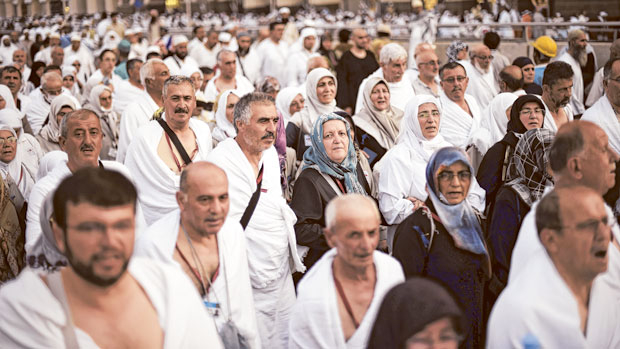
Dubai: For more than a billion Muslims worldwide, these are The Greatest Days — the days of the Haj.
The pilgrimage to Makkah and its vicinity — in western Saudi Arabia — has drawn some 1.4 million people this year. Almost 5,000 pilgrims are from the UAE.
On Friday, they are expected at Mount Arafat, on the outskirts of Makkah, in what is described as the climax of the Haj. Pilgrims, all wearing two plain sheets of cloth, will beseech divine forgiveness and favour, as Prophet Mohammad (PBUH) directed them to, around 1,400 years ago.
In his famed Farewell Speech from Arafat, he also said no man is superior to another, expect by way of piety.
It is this piety the masses of pilgrims are seeking to attain.
In the coming days — from the 10th to 13th day in the month of Haj — they will sacrifice livestock in gratitude for the blessing of Haj. Hundreds of millions of Muslims outside Makkah will also join them on Saturday to celebrate Eid Al Adha, the festival of sacrifice.
Soon, the tent city of Mina near Makkah, now bursting with life, will fall silent again — until the next Haj, and so on.
Each year the pilgrimage attracts millions of Muslims, but relatively fewer pilgrims have been allowed in since 2012, when construction to expand the Grand Mosque in Makkah began. The work has restricted the available space for rituals, and Saudi authorities have introduced tighter quotas to manage the crowds.
Still, Makkah and its environs are teeming with pilgrims. The crowding has, as routine, placed health and emergency workers on high alert. Basic hygiene, especially that of hands, and face masks can immensely limit the spread of disease, officials say. Other risks — of stampedes or fires in tents — have been severely mitigated over the years. And to keep the sea of people on the move, the pilgrimage even has its own Makkah Metro now (officially the Makkah Mass Rail Transit).
The conditions and services during the Haj have been constantly improving each year, both pilgrims and officials attest. However, scholars say, it is up to each individual pilgrim to spiritually make the most of the Haj, by properly undertaking the rituals and avoiding religious prohibitions.












